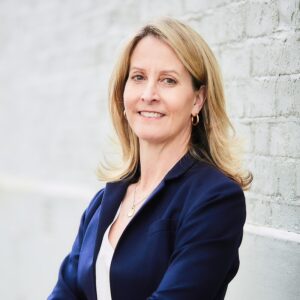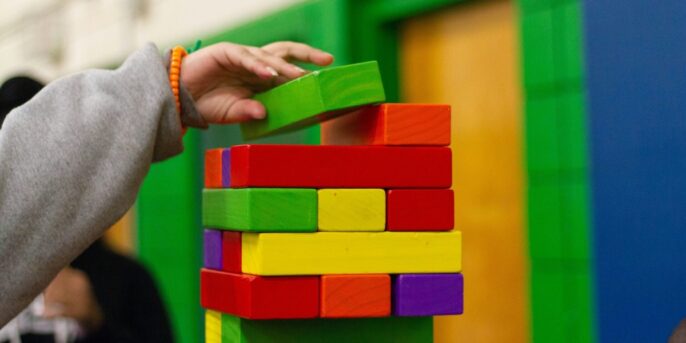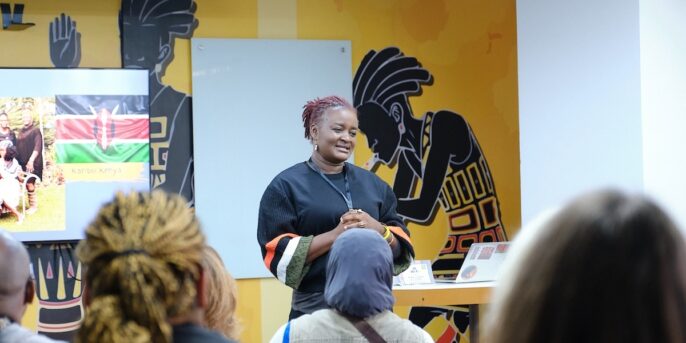In elementary school, Tevin tried to do what teachers asked of him. He came to school happy to learn and see his friends. He tried to do his worksheets, but so many other things seemed more interesting: Were the birds in the trees outside the window building a nest? He found school boring and stifling—nothing but sitting at a desk all day, regurgitating facts. At first, he answered the questions on his assignments in the shortest way possible. Soon enough, he stopped doing his homework.
Teachers saw he was bright and curious. Though he was one of the few Black kids in his predominantly white neighborhood public school in Cedar Rapids, Iowa, he had a lot of friends and asked lots of questions outside of class. However, teachers struggled to help him comply with what was asked of him. He was constantly interrupting and off task in class. Midway through elementary school, out of desperation, the school gave Tevin an Individualized Education Plan (IEP), in the hopes that the extra help would help with his misbehavior – it didn’t.
In middle school, Tevin went from coasting and learning little to fighting the system and learning less. He started skipping classes. More than once he got suspended. Sometimes his bottled-up frustration exploded, and he would disrupt his class, yelling at his teacher about how dumb everything was. All the teachers in his school, and even a few district leaders, knew Tevin as the “problem child.”
Deeply disengaged from his learning, he used what was in his control to let the world know school did not work for him.
The System is Filled with Learners Like Tevin
While Tevin’s name has been changed here for privacy, his story is real and he is by no means alone. The two of us spent three years investigating disengagement in the US public and private school systems. We interviewed close to 100 ethnically and socioeconomically diverse students from over 15 states. We spoke to parents and teachers and learning scientists, neuroscientists and psychologists and academics who study engagement to understand what helps kids learn and what gets in the way. We partnered with Brookings and Transcend to do in-depth research, including a survey with over 65,000 students between third and twelfth grade and a survey with almost 2,000 parents of third through twelfth graders.
We found a shocking majority of teens don’t like what they do at school all day. Some feel intense academic pressure to succeed in a system that feels wildly disconnected from their own interests and the very real problems in the world. Others are deeply bored, aware they are not being prepared for the world that awaits them.
The forthcoming Brookings-Transcend report The Disengagement Gap: Why Student Engagement Isn’t What Parents Expect, found that less than 10 percent of students have learning experiences that regularly let them explore in school: developing their own ideas; learning something they are interested in; choosing how to do their work; having a say about what happens to them. That figure drops to less than 4 percent when we look just at kids in middle school and high school.
Our big question: Is it possible to get kids who were deeply disengaged with learning re-connected to it? Importantly, what could parents, teachers, and education leaders do when they had a Tevin—a kid who was bright and curious and yet deeply frustrated with school? And how could teachers better use engagement—a well-researched but poorly translated area of learning science, to unlock student motivation?
The Four Modes
As we know, kids’ motivation and engagement in school can be hard to see—a lot is invisible to the adults in their lives. We want to make it visible, so that adults working with kids and parents have language and strategies to help coach their kids to be good learners: engaged, involved, persistent, and self-aware. The four modes are:
- Resister: These kids struggle silently with feelings of inadequacy or invisibility, expressing their disengagement through behaviors like ignoring homework, feigning illness, skipping class, or acting out.
- Passenger: These children coast along, doing the bare minimum and complaining about the pointlessness of their classes. They need help connecting school to their interests, skills, and learning needs.
- Achiever: While seemingly engaged, these high-achieving students often tie their self-worth to their performance, leading to a fear of failure and potential mental health challenges. They need support in taking on new challenges and encouragement to value themselves beyond their achievements.
- Explorer: Young people need more time in this mode every day. It is where teens are driven by internal curiosity, investigate questions that matter to them, and persist in achieving their goals. These teens develop resilience and skills that help them thrive. When kids have the opportunity to be in Explorer mode in school, they get better grades and are more motivated, engaged, and happy.
Explorers exude agency: the skills and will to set meaningful goals and marshal the resources to meet them.
Jenny Anderson & Rebecca Winthrop
What Can We Do to Support More Explorer Moments?
Kids need more time in Explorer mode—even when academics aren’t going so well in school. That’s what Tevin’s parents did. They didn’t condone his misbehavior, and they disciplined Tevin when necessary. But they also didn’t pigeonhole him as a bad student and problem child.
They often told the school that they never saw any of this disruptive behavior at home. He was kind, and inquisitive when digging into his personal interests. For example, ever since his family built a new house on the outskirts of town, he had been fascinated with construction. He asked to go to open houses on the weekend to see how homes were laid out and he imagined different ways to organize them. He taught himself how to use computer-aided design (CAD) software and began designing buildings on his computer after school and on weekends.
Tevin was not in Passenger or Resister mode outside of school. He was an Explorer. Tevin’s parents leaned into his interests, even though he was still getting in trouble at school. His parents knew he needed something constructive to focus on—a place for him to develop his identity as capable and smart, not poorly behaved, and unmotivated. They helped to connect the dots between his interests and the real world, explaining what architects do and the kind of work Tevin would need to do to become one. His parents noticed that when he worked on his designs he perked up; he got more energy and was in a better mood. He became excited about what he was learning.
Tevin almost got expelled from his traditional public school. But at a real low point, his principal suggested the family try an innovative high school program called Iowa BIG. At Iowa BIG, Tevin would spend half of each day at the high school; for the other half of the day, he would apply the knowledge he had learned to solving the community’s problems, working on projects with local nonprofits, government agencies, and businesses.
Change the Environment, Change the Learning Outcomes
Almost immediately, Tevin felt differently about school. There were no rows of desks, no worksheets to complete in twenty minutes, no blackboard at the front of a classroom. “It felt like I could finally breathe,” Tevin said, “ I had been in an airtight container, and all of a sudden there was an abundance of air.”
His teachers knew about his interest in architecture and his first project was designing the school’s all-school meeting space. He dove in immediately, using the skills he had developed out of school.
Tevin eventually enrolled at Morningside University in Sioux City because he liked their focus on connecting academics to real-world problems. He graduated with a 3.9 GPA, a double major in business administration and public policy, and a double minor in law and sociology. He is now the youngest board member of the African American Museum of Iowa and has a job he loves as an innovation analyst for one of the country’s leading clean energy companies.
Few would have predicted this path for Tevin. This is Explorer mode at its best.
The Explorer Advantage: Productive and Happy
Too many parents and teachers think Achiever mode is the peak of the engagement mountain. Kids in Achiever mode get stuff done and make the adults around them look good. But too often, those kids decide that meeting the expectations of the system is the only important goal. Since the system is insatiable, they risk burning out.
Explorer mode is actually the peak of the engagement mountain. Explorers exude agency: the skills and will to set meaningful goals and marshal the resources to meet them. In an era that will require navigating massive technological and social changes, agency will be paramount.
With agency, kids in Explorer mode connect their interests to what’s being taught: Can we calculate the potential growth of Beyoncé’s net worth using exponents? They make suggestions about how to do the work they are asked to complete: Can we work with a partner? They seek help to investigate things they’re interested in: Can I install and use CAD software on my computer? They express their preferences: I want to focus on how President Truman grew the government bureaucracy for my history essay.
Rigorous research across multiple countries shows that in classrooms where teachers support students’ agentic engagement, kids get better grades and do better on tests. This is compared to classrooms in the same schools where teachers do not provide an environment that lets kids explore.
Helping kids be in Explorer mode doesn’t just make for happier kids—something we all want—but more productive ones. Learning well will not only help them to feel better, but also to live better.
You can learn more about helping kids find their Explorer mode in Jenny and Rebecca’s new book, “The Disengaged Teen: Helping Kids Learn Better, Feel Better, and Live Better” out January 7, 2025 and currently available for pre-order!





